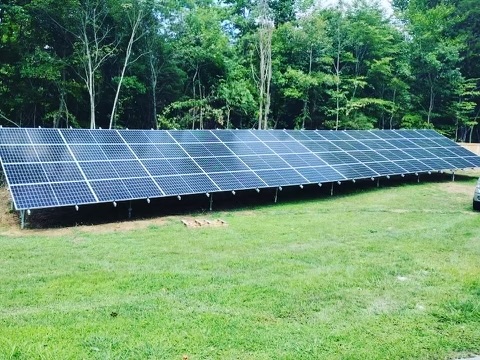
Everyone Saves When The Sun Is Shining
Solar Energy and EV charger installations that save you money and help save the environment.
Gallery












OUR RESIDENTIAL AND COMMERCIAL SERVICES
How much will solar cost?
Determining the precise answer to your question requires collecting specific details about your electricity consumption and the characteristics of your installation site. This complexity arises from the numerous factors involved in setting up a solar system, such as your energy consumption levels, desired energy output, installation method, shading conditions, and several other variables.
How does solar power work?
Solar energy works by using photovoltaic solar panels to capture sunlight and convert it into electricity. When sunlight hits the panels, it excites electrons within the semiconductor material, generating a flow of electricity in the form of direct current (DC). An inverter then converts this DC power into alternating current (AC) for household use or grid connection. Excess electricity can be stored in batteries or fed back into the grid. Solar energy is a clean and renewable source of power that reduces reliance on fossil fuels and lowers environmental impact.
Will my solar panels work when cloudy, storming or at night?
Solar panels are less effective when it’s cloudy or stormy because they rely on direct sunlight for optimal energy generation. During overcast conditions, they can still produce some electricity, albeit at a reduced rate. However, at night, when there is no sunlight, solar panels do not generate electricity. To ensure continuous power supply, many solar installations are connected to the grid, allowing you to draw electricity when your panels are not producing, such as during the night or on cloudy days. Some systems also incorporate battery storage to store excess daytime energy for use during nighttime or inclement weather, increasing energy independence.
How many solar panels will I need?
The number of solar panels you need for your house depends on factors like your energy consumption, location, and the efficiency of the panels. On average, a typical residential solar system might require anywhere from 20 to 30 solar panels to meet the electricity needs of an average American home. To get an accurate estimate, consider your monthly energy usage in kilowatt-hours (kWh) and the average daily sunlight hours in your area. A solar professional can help determine the exact number of panels required for your specific circumstances through a site assessment.
Will my solar panels get dirty?
Solar panels have a coating on them to shed dirt and water. Any normal small amount of dirt and pollen will be washed off by rain. The Southeastern US doesn’t really have to worry about dirty panels like the desert regions out west do.
How long does the install take?
The average residential installation only takes a day. Commercial installations can take multiple days depending on how large of an array is being installed.






